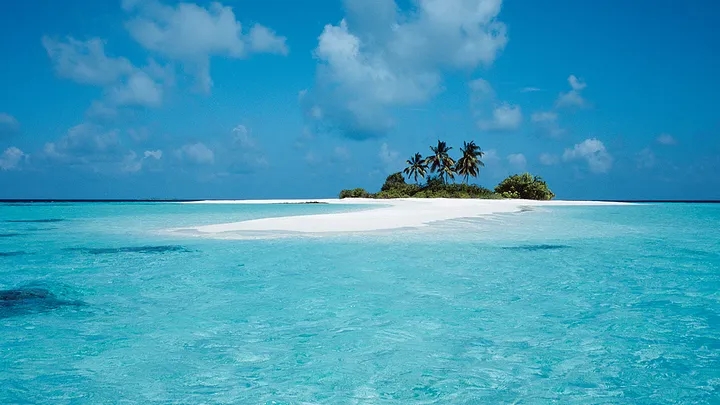
Blue Economy: Need For Integrated Marine Development
The blue-water economy of the Indian Ocean will become central to the development of the entire region
Traditionally, building of ports is an important activity to create the infrastructure for transportation for international trade. Most developed countries control the ports and monopolise sea transport and add value to the goods transported by them.
Other maritime activities such as maritime security, fisheries, mining of the ocean floor and others are handled by different Ministries and Departments of the government. But the time has come to integrate these activities and plan for them at the time of constructing ports to develop in a balanced manner resting on the three pillars of security, sustainability and prosperity.
The new phenomenon of blue economy, introduced by Gunter Pauli in his 2010 book, The Blue Economy: 10 Years - 10 Innovations - 100 Million Jobs, has opened new avenues for bilateral and multilateral work, involving the environment, energy, defence and food production.
The blue economy, as distinct from the blue-water economy, encompasses the “green economy”, with focus on the environment, and the “ocean economy” or “coastal economy”, with its emphasis on complementarities among coastal and island states for sustenance and sustainable development.
The blue economy is defined as “marine-based economic development that leads to improved human wellbeing and social equity, while significantly reducing environmental risks and ecological scarcities”.
The blue economy envisages fascinating innovations to open a new world of production and lifestyle. These game-changing ideas will entice entrepreneurs.
Surprisingly, these innovations have the potential to increase rather than shed jobs, as emulating natural systems will mean the deployment of humans rather than machines.
Maritime activities had its heyday back in the 1980s, with the sensational discovery of manganese nodules and cobalt crusts on the ocean floor. The euphoria over marine mining led to the establishment of the International Seabed Authority. The UNCLOS, the “constitution of the seas”, which came into force in 1994, became the basis for the legal rights for mining in the open sea. The interest in seabed mining flagged because of escalating costs, but it is being revived on account of the demand for minerals and metals in industrial development, particularly in China, Japan and India.
India has been aware of protecting oceans primarily as a measure of security. During the Cold War, India was extremely active in the UN Adhoc Committee on the Indian Ocean in its bid to keep the Indian Ocean a Zone of Peace, which, in essence, meant keeping the Indian Ocean free of great-power rivalry.
But the littoral and hinterland states differed on the meaning of the zone. Many sought the presence of external powers to counter India’s growing strength. But even at that time, cooperation for ocean resources was a priority.
Today, India is working with the states in the Indian Ocean region and others to strengthen security and economic cooperation. The re-emergence of piracy has added a new dimension. The new focus on the India-Pacific highlights the security and economic dimensions. The US rebalancing of forces and counter-measures by China have created a new cold war. New partnerships are in the making in the India-Pacific, such as the ‘Quadrilateral’, seeking Indian participation by competing powers. The blue waters of the Indian Ocean have become a new theatre of tension.
The Chinese Belt and Road Initiative (BRI) is a USD 150 billion grandiose development strategy and framework for China to push for a bigger role in global affairs and to increase its exports. Given the history of Sino-Indian relations, it is difficult to look at BRI as a benign initiative. But it will be difficult to stay out of a new global highway linking Asia with Europe.
The blue-water economy will become central to the development of the entire region. Our competition with China is likely to be exacerbated by the competition for a piece of the blue economy.
A detailed study of the blue economy carried out by FICCI has laid out a road map for integrated and comprehensive development the blue economy. Both the traditional blue-water economy and the new blue economy are important for India’s sustainable development.
The imperatives of cooperation and the need for adept diplomacy are evident. Prime Minister Narendra Modi endorsed the blue economy during his visit to Seychelles, Mauritius and Sri Lanka. The joint statement with Mauritius envisages close cooperation in vital areas.
Goal 14 of the UN’s Sustainable Development Goals (SDGs) — “Conserve and sustainably use the oceans, seas and marine resources for sustainable development” - makes detailed references to the reduction of marine pollution, conservation of coastal and marine areas and regulated fish harvest. The SDG agenda has to be developed into action at the time of building commercial ports.
The oceans carry the key to the destinies of the rapidly advancing global order. Covering 72% of the Earth's surface, oceans provide a substantial portion of the world's population with food and livelihood.
90% of the global goods trade travels via sea, and the marine and coastal environment is a big tourist attraction as well. Research and innovation in marine biotechnology, access to seabed resources, investment in marine ICT and proper integration of coastal tourism and other services can play a crucial role in injecting stimulus to create additional economic activities for both India and partner nations.
Our National Vision in this regard is clearly articulated in the term “SAGAR”- Security and Growth for All in the Region coined by our Prime Minister Narendra Modi.
PM Modi emphasised that the Blue Chakra of India’s national flag represents the potential of the blue economy for India. In this light, Prime Minister recently proposed an Indo Pacific Oceans Initiative to conserve and sustainably use the maritime domain and to make meaningful efforts to create a safe, secure and stable maritime domain.
Responsible development of blue economy forms a cornerstone to the realisation of the vision for New India. This can be realised if government, industry and academia rally together with each sector of the economy and section of society to attain this common goal.
In terms of the international dimensions of discourse and diplomacy relating to the blue economy, partnerships are necessary with various countries to advance India’s stance.
It is quite evident that in the present times, blue economy is one of the most important areas of cooperation where countries of South Asia, Pacific Island Developing Countries and the West, have developed various National Strategies and Maritime Agendas to develop blue economy and sustainably tap the potential of ocean and sea resources in their exclusive economic zones.
To harness marine resources for economic and social development in a sustainable manner, one would need to learn from the best practices of other countries and collaborate with them in terms of coastal zone management and marine spatial planning.
Oceans are shared commons and the development of the blue economy would be a collective effort with deep consciousness for sustainable and responsible leverage of our ocean wealth.
Development of infrastructure in the form of building ports, developing water transport, setting up fisheries projects and mining on the ocean floor, an integral approach is necessary to benefit from the opportunities offered by the blue economy.

